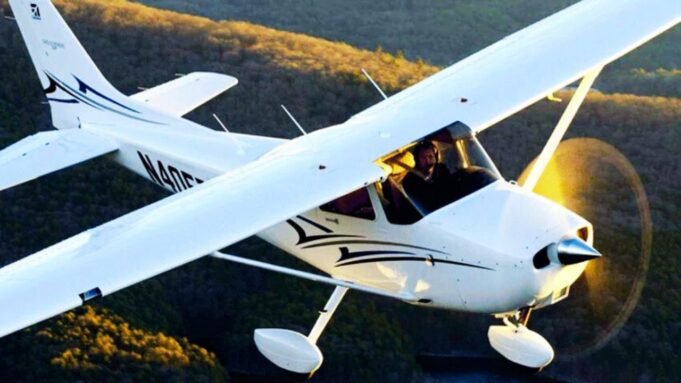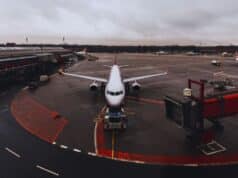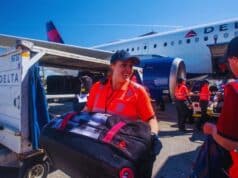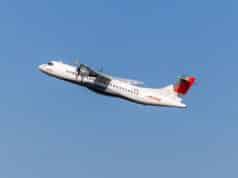Embarking on your first solo flight is a thrilling milestone in any aspiring pilot’s career. The freedom of piloting an aircraft alone is exhilarating, but it comes with a significant responsibility to be well-prepared with the right documents and endorsements.
Ensuring you have everything in order can make the difference between a dream realized and a plan grounded. Here’s a comprehensive guide to the essentials every aviator must secure before taking off solo.
Must-Have Documents for Every Solo Aviator
- Student Pilot Certificate: This is your ticket to the cockpit. The Student Pilot Certificate is mandatory for all solo flights and is obtained through the Federal Aviation Administration (FAA). You must apply through the Integrated Airman Certification and Rating Application (IACRA) system or by visiting an FAA-certified flight instructor (CFI).
- Medical Certificate: Health is as crucial as skill in flying. Pilots need a valid medical certificate from an Aviation Medical Examiner (AME). Depending on your flying needs, you can apply for a first-, second-, or third-class medical certificate. Each has different criteria and validity periods, so choose the one that best fits your aviation goals.
- Government-Issued Photo ID: Ensure you carry a government-issued photo ID, such as a driver’s license or passport, every time you fly. This is necessary for identification purposes at all airports.
Key Endorsements for Your Logbook
- Pre-solo Aeronautical Knowledge Test: Before your first solo flight, you’ll need to pass a test that covers applicable regulations, airspace rules, and procedures for the airport where you’ll solo. This test is administered by your flight instructor.
- Pre-solo Flight Training Endorsement: This endorsement confirms that you have received and understood the required training to fly solo. It’s your instructor’s approval that you are competent to handle the aircraft safely.
- Solo Flight Endorsements: There are specific endorsements for solo flights in different types of aircraft, as well as for solo cross-country flights. These are critical, as they each affirm your capability to handle varying flying conditions and more complex navigation tasks.
Related: What Does Aviates Stand for in Aviation? [The Art of Flying]
Pre-Flight Preparation: Document Checklist
Having a checklist is paramount. Double-check that you have your Student Pilot Certificate, Medical Certificate, government-issued ID, and all necessary endorsements from your flight instructor. Keep these documents organized and readily accessible to streamline your pre-flight preparations.
Navigating Through FAA Regulations
Understanding and complying with FAA regulations is non-negotiable. Familiarize yourself with Section 61 of the Federal Aviation Regulations, which pertains to the certification of pilots. Being well-versed in these rules will not only ensure compliance but also enhance your confidence as a pilot.
Airspace and Weather Conditions
Understanding airspace and weather conditions is essential:
- Airspace Regulations: Familiarize yourself with the types of airspace you will be navigating. Use sectional charts to pinpoint any controlled or restricted areas and ensure you meet communication protocols when entering controlled zones.
- Weather Analysis: Scrutinize the weather patterns that could affect your journey. Pay attention to details like wind speed, visibility, and precipitation levels. Know how to handle unexpected weather changes.
- METAR and TAF Reports: Acquire the skills to decipher METAR (Meteorological Aerodrome Report) and TAF (Terminal Aerodrome Forecast) reports. These provide up-to-date information on the weather conditions at your starting point and destination.
Thorough preparation is key to enhancing safety and boosting your confidence, making your solo flight a truly fulfilling experience.
Read More: What is The Marvelous VFR C500?
What Documents Does a Student Pilot Need to Solo Flight?
For a student pilot preparing for a solo flight, having the right documentation is crucial to ensure compliance with aviation regulations and to guarantee safety. Here are the essential documents a student pilot must have to undertake a solo flight:
Student Pilot Certificate: This is the first and most fundamental document required. It serves as proof that the student has met all requirements to train as a pilot. It must be obtained before flying solo and is issued by the Federal Aviation Administration (FAA) after an assessment.
Medical Certificate: A student pilot must have a valid medical certificate issued by an Aviation Medical Examiner (AME). This certificate ensures that the pilot meets the health and fitness standards required to safely operate an aircraft. There are three classes of medical certificates, and the one needed can depend on the pilot’s training and flying goals.
Logbook Endorsements: Before a solo flight, a student must receive specific endorsements from a certified flight instructor (CFI). These include:
- Pre-solo aeronautical knowledge test: An endorsement after passing a test covering knowledge of the aircraft, airspace, and other relevant flight operations.
- Pre-solo flight training: This endorsement confirms that the student has received and demonstrated proficient flight training in the make and model of aircraft they will fly solo.
- Solo flight (specifically for the make and model of aircraft): An endorsement that the student is competent to solo the specific aircraft, renewed every 90 days.
- Government-Issued Photo ID: A valid form of photo identification, such as a driver’s license or passport, is required for identification at airports and other checkpoints.
Logbook: While not a formal document from regulatory authorities, the student’s logbook should be up-to-date and contain all necessary endorsements and records of flight time. This logbook serves as a record of the student’s training and is often reviewed by instructors and examiners.
Having these documents prepared and accessible is essential for any student pilot before attempting a solo flight. Proper documentation ensures not only legal compliance but also enhances safety by confirming that all requisite training and health checks have been met.
Read Also: Insider Tips for Saving Money on Private Aircraft Charter Flights
Advice from Experienced Pilots
Seasoned pilots often emphasize the importance of thorough pre-flight preparations. Many share stories of how being meticulous with documentation and checklists helped them manage their initial solo flights better. Take this wisdom seriously—it comes from experience.
After Your Solo Flight: Next Steps
After celebrating your first solo flight, consider the next steps in your training. Additional endorsements for different aircraft and advanced training modules await. Each step forward will build on the confidence gained from your solo flight.
Conclusion: The Sky is Just the Beginning
Completing a solo flight is a significant achievement, but it’s just the beginning of a rewarding journey in aviation. With the right preparation and a thorough understanding of the necessary documents and regulations, the sky’s the limit.
Frequently Asked Questions (FAQs)
Here you can find a few commonly Asked Questions about the Topic of “What Personal Documents and Endorsements for Solo Flight?” Let’s check them out
What is a Student Pilot Certificate and why do I need it for a solo flight?
A Student Pilot Certificate is your official authorization to fly an aircraft under certain conditions while learning to fly. It is required by the FAA and must be obtained before your first solo flight as it verifies your eligibility and registration as a student pilot.
How do I obtain a Medical Certificate for solo flight, and which class do I need?
You must obtain a Medical Certificate from an FAA-authorized Aviation Medical Examiner (AME). Most student pilots obtain a third-class medical certificate, which is sufficient for solo flights and private pilot operations.
What endorsements are required in my logbook before I can solo?
Before soloing, you need at least three key endorsements from your Certified Flight Instructor (CFI): a pre-solo aeronautical knowledge test, pre-solo flight training, and solo flight (specific to the make and model of aircraft you will fly).
Where should I keep my Student Pilot Certificate and Medical Certificate?
You should carry your Student Pilot Certificate and Medical Certificate with you during all flight operations, including all solo flights. These documents may be required for inspection by aviation authorities.
What happens if my medical certificate expires before I complete my solo flight training?
If your medical certificate expires, you cannot continue solo flying until it is renewed. Keep track of the expiration date and ensure you renew your medical certificate in time to avoid interruption in your flight training.
Can I use a digital copy of my government-issued photo ID for solo flying?
No, you should carry the original physical copy of your government-issued photo ID when flying. Digital copies are not accepted as valid identification by the FAA and other aviation authorities during inspections.
How often do I need to renew my solo flight endorsement?
The solo flight endorsement for a specific make and model of aircraft is valid for 90 days. You must receive a new endorsement from your CFI after this period if you wish to continue solo flying in that aircraft.















[…] Related: What Personal Documents and Endorsements for Solo Flight? […]
Comments are closed.